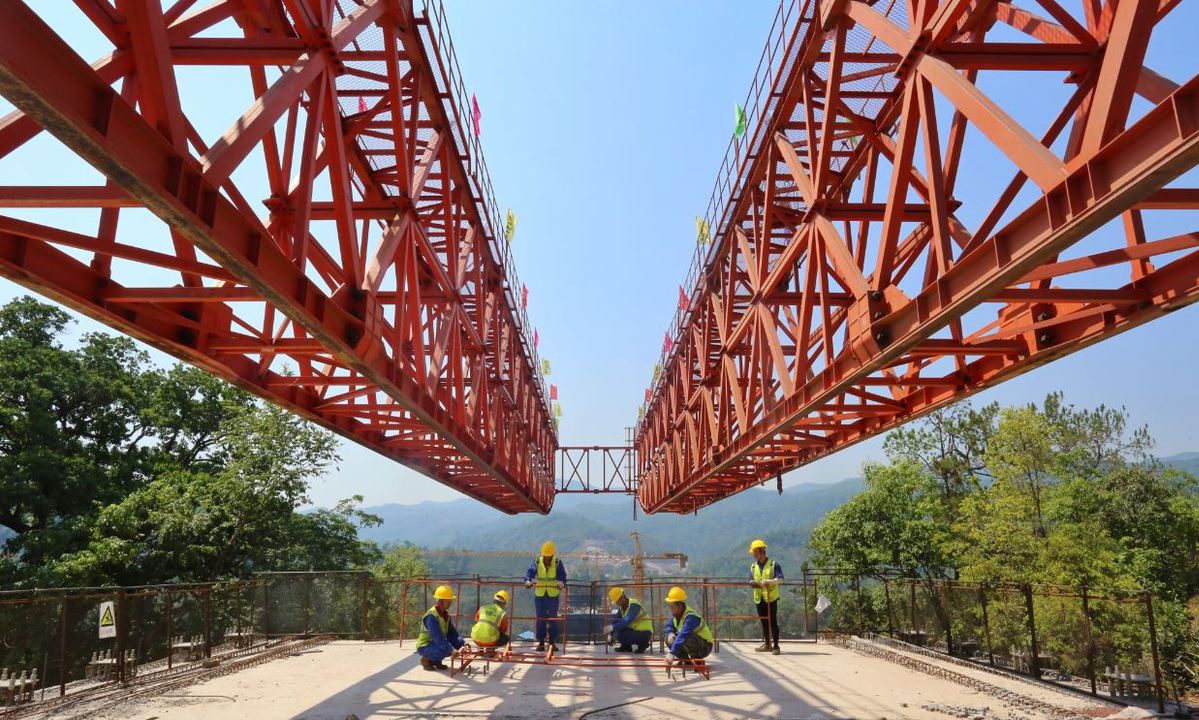China-Laos railway is currently about 70 percent completed

Employees work on the China-Laos railway project in Kunming, Yunnan province, the starting point of the railway line under the Belt and Road Initiative. (Xinhua)
VIENTIANE - Officials from the Lao Ministry of Public Works and Transport and other sectors are learning about railway operations from Chinese experts in Lao capital Vientiane to prepare for the opening of China-Laos railway in 2021.
The final railway technology training course is taking place at the Lao Front for National Development's training center from Friday to Nov 28, with 45 people attending the course, local daily Vientiane Times reported Monday.
The training program teaches Lao officials about railway operations and management and is supported by China's Ministry of Commerce and implemented by Peking University.
Speaking at the opening of the program, Lao Deputy Head of Office of the Laos-China Cooperation Commission Anongdeth Chanthala said "The railway is currently about 70 percent complete and is scheduled for completion at the end of 2021. It is a large-scale cooperation project and will require more technical personnel to operate and maintain the railway."
Laos and China are also planning to build a training school for railway technicians and expect to start its design in 2020, he added.
The planned 417-km railway, which connects Vientiane capital with the Chinese border, traverses the provinces of Vientiane, Luang Prabang, Oudomxay and Luang Namtha, passing through 75 tunnels with a combined length of 197.83km.
The railway will be a milestone in the socio-economic and cooperation strategies of the two countries.
The Lao government places great importance on the project, which is part of a planned regional railway linking southern China to Singapore via Laos, Thailand and Malaysia.
Laos is closely examining opportunities under the Belt and Road initiative, which provides clear goals for comprehensive cooperation between countries in the region and promotes greater connectivity in policies, infrastructure, trade and investment, finance, society, and culture, said the report.


